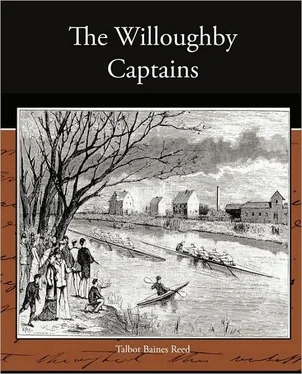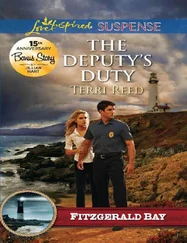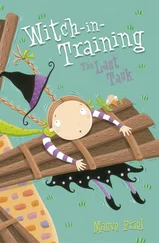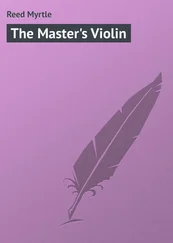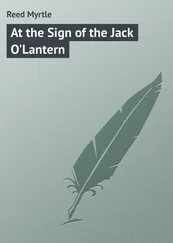He was, if truth must be told, more enthusiastic about his cricket than about his studies, and that evening it was a good while before Wyndham could get his mind detached from bats and balls and concentrated on Livy.
Riddell himself, too, found work more than ordinarily difficult that night, but his thoughts were wandering on far less congenial ground than cricket.
Supposing that letter did mean something, how ought he to act? It was no pleasant responsibility to have thrown on his shoulders the duty of bringing a criminal to justice, and possibly of being the means of his expulsion. And yet the honour of Willoughby was at stake, and no squeamishness ought to interfere with that. He wished, true or untrue, that the wretched letter had been left anywhere but in his study.
“I say,” said young Wyndham, after about an hour’s spell of work, and strangely enough starting the very topic with which Riddell’s mind was full—“I say, I think that boat-race business is blowing over, do you know? You don’t hear nearly so much about it now.”
“The thing is, ought it to blow over?” said the captain, gravely.
“Why, of course! Besides, after all it may have been an accident. I broke a bit of cord the other day, and it looked just as if it had been partly cut through. Anyhow, it’s just as much the Parretts business as ours, and they aren’t doing anything, I know.”
“It would be a good deal more satisfactory to have it cleared up,” said Riddell.
“It would do just as well to have a new race, and settle the thing right off — even if they were to lick us.”
Wyndham went soon afterwards. Riddell was too much occupied with his own perplexities to think much just then of the boy’s views on this burning question. And after all, had he thought of them, he would probably have guessed, as the reader may have done, that Wyndham’s present cricket mania made him dread any reopening of the old soreness between Parrett’s and the schoolhouse, which would be sure to result, among other things, in his exclusion, as a member of the latter fraternity, from the coveted place in the second-eleven.
The next morning the captain was up early, and on his way to the boat-house. Ever since the race the river had been almost deserted, at any rate in the early mornings.
Consequently when Riddell arrived at the boat-house he found no one up. After a good deal of knocking he managed to rouse the boatman.
“I want Tom,” he said, “to steer me up to the Willows.”
“You might have let me known you’d want the gig yesterday,” said the man, rather surlily; “I’d have left it out for you overnight.”
Had it been Bloomfield or Fairbairn, or any other of the boating heroes of Willoughby, Blades the boatman would have sung a very different song. But a boatman does not know anything about senior classics.
“You’ll find a boat moored by the landing there,” said that functionary; “and give a call for young Alf, he’ll do to steer you.”
But this would not suit Riddell at all. “No,” said he; “I want Tom, please, and tell him to be quick.”
The man went off surlily, and Riddell was left to kick his heels for twenty minutes in a state of very uncomfortable suspense.
At length, to his relief, Tom, a knowing youth of about fourteen, appeared, with a cushion over one shoulder and a pair of sculls over the other, and the embarkation was duly effected.
Tom was a privileged person at Willoughby. In consideration of not objecting to an occasional licking, he was permitted to be as impudent and familiar as he pleased to the young gentlemen in whose service he laboured. Being a professional waterman, he considered it his right to patronise everybody. Even old Wyndham last season had received most fatherly encouragement from this irreverent youngster, while any one who could make no pretensions to skill with the oars was simply at his mercy.
This being so, Riddell had made up his mind for a trying time of it, and was not disappointed.
“What! so you’re a-goin’ in for scullin’ then?” demanded the young waterman as the boat put off.
“Yes; I want to try my hand,” said the captain.
“ You’ll never do no good at it, I can tell yer, before yer begins,” said the boy.
So it seemed. What with inexperience of the sculls, and nervousness under the eye of this ruthless young critic, and uneasiness as to the outcome of this strange interview, Riddell made a very bad performance.
“Ya-ow! I thought it would come to that!” jeered Tom when, after a few strokes, the captain got his sculls hopelessly feathered under water and could not get them up again. “There you are! That comes of diggin’! Always the way with you chaps!”
“Suppose, instead of going on like that,” said Riddell, getting up the blades of his sculls with a huge effort, “you show me the way to do it properly!”
“What’s the use of showing you? You could never learn, I can see it by the looks of you!”
After this particularly complimentary speech Riddell rowed ploddingly on for a little distance, Tom whistling shrilly in the stern all the way in a manner most discouraging for conversation.
But Riddell was determined, come what would, he would broach the unpleasant subject. Consequently, after some further progress up-stream, he rested on his oars, and said, “I’ve not been out on the water since the day of the boat-race.”
“Aren’t you, though?” said Tom.
A pause.
“That was a queer thing, the rudder-line breaking that day,” said Riddell, looking hard at his young companion.
Tom apparently did not quite like it. Either it seemed as if Riddell thought he knew something about the affair, or else his conscience was not quite easy.
“In course it was,” replied he, surlily. “I knows nothink about it.”
Riddell, for a quiet, nervous boy, was shrewd for his age, and there was something in Tom’s constrained and uncomfortable manner as he made this disclaimer that convinced him that after all the mysterious letter had something in it.
It was a bold step to take, he knew, and it might end in a failure, but he would chance it at any rate.
“You do know something about it, Tom!” said he, sternly, and with a searching look at the young waterman.
Tom did! He didn’t say so! Indeed he violently denied that he did, and broke out into a state of most virtuous indignation.
“Well I ever, if that ain’t a nice thing to say to a chap. I tell you, I knows nothink about it. The idea! What ’ud I know anythink about it for? I tell you you’re out, governor. You’re come to the wrong shop — do you hear?”
Riddell did hear; and watching the boy’s manner as he hurried out these protests, he was satisfied that he was on the right tack.
It had never occurred to him before. Perhaps the culprit was Tom himself; perhaps it was he who, for some reason of his own, had cut the line and caused all the mischief.
If that were so, what a relief and what a satisfaction it would be! Riddell felt that if Tom himself were the wrong-doer he could almost embrace him, so great would be his joy at knowing that no Willoughby boy was guilty of the crime. But it was too good a notion to be true, and Tom soon dispelled it.
“I tell you,” continued he, vehemently, but looking down so as to avoid the captain’s eye. “I tell you I aren’t done it, there. It’s no use your trying to fix it on me. Do you suppose I wouldn’t know if I’d done it? You blame the right parties, governor, do you hear? I ain’t done it.”
“I never said you did,” replied Riddell, feeling he had by this time got the upper hand in the argument, “but you know who did.”
“There you go. How do I know? I don’t know, and I ain’t done it.”
Читать дальше
